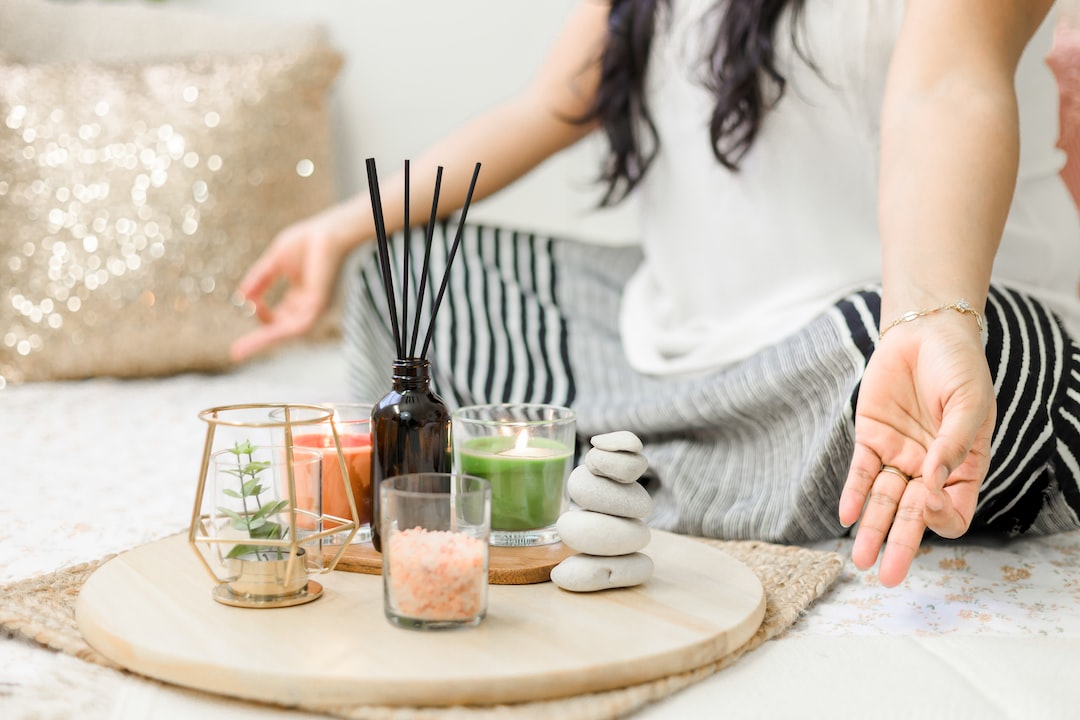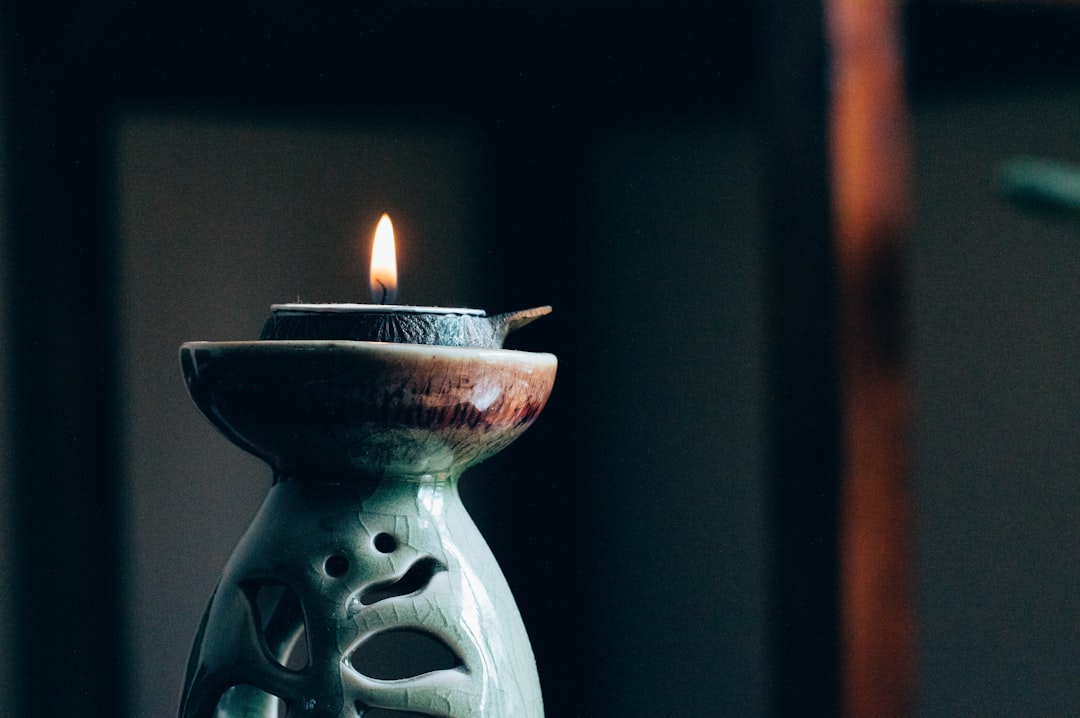Stress is an inevitable part of life, and it can be overwhelming to deal with daily responsibilities and challenges. If you’re someone who experiences stress on a regular basis, mindfulness can be an incredibly effective tool for reducing stress and promoting a sense of calm in your daily life. Mindfulness is the practice of bringing your full attention to the present moment with a non-judgmental awareness. By practicing mindfulness, you can increase your ability to manage stress, and develop a greater sense of well-being. In this blog post, we’ll explore several approaches to mindfulness that can help you manage stress in your day-to-day life. From grounding exercises to self-care rituals, these mindfulness practices will help you feel more calm, centered, and grounded. Let’s dive in!
Plant Your Feet: Grounding Exercises for Stress Relief
When we experience stress, it is often easy to feel overwhelmed and lose control. Our minds become cluttered, our thoughts race, and our bodies respond with tension and anxiety. One effective tool for managing stress is to practice grounding exercises that can help to center your emotions and connect you to the present moment.
Grounding exercises are simple techniques that can be done anytime, anywhere, to help you become aware of your surroundings and focus on the present moment. One of the easiest ways to ground yourself is to plant your feet firmly on the ground and take a few slow, deep breaths. This technique can help you to feel stable and grounded, and can help to calm your mind and body.
Another grounding exercise is to focus on your senses. Close your eyes and take a few deep breaths, then slowly open your eyes and take in your surroundings. What do you see? What do you hear? What do you feel? Take a few moments to observe and name these sensations, and allow yourself to become fully present in the moment.
Other grounding exercises can involve physical movement or touch. For example, try tapping your feet on the ground or gently clenching and releasing your fists. You can also use touch to ground yourself, such as by holding a comforting object or rubbing your hands together briskly.
No matter which grounding exercise you choose to practice, the key is to bring your attention to the present moment and connect with your body and surroundings. By doing so, you can help to ease feelings of stress and anxiety, and cultivate a sense of calm and balance.
Grounding exercises are simple techniques that can be done anytime, anywhere, to help you become aware of your surroundings and focus on the present moment.
Be Mindful of Your Thoughts: Meditation and Mindful Breathing for Stress Reduction
When it comes to managing stress, meditation and mindful breathing can be powerful tools in helping to calm the mind and alleviate feelings of anxiety. By practicing mindfulness, we can learn to become more aware of our thoughts and emotions, and cultivate a sense of inner calm that can help us better navigate challenging situations.
One of the simplest and most effective ways to practice mindfulness is through meditation. This can involve simply sitting in a quiet place and focusing on your breath, or using a guided meditation app or video to help you relax and let go of stress.
Mindful breathing is another effective technique for reducing stress. By focusing on your breath and bringing your attention to the present moment, you can bring a sense of calm to both your mind and body. This can involve taking slow, deep breaths and focusing on the sensation of the air moving in and out of your body.
Practicing meditation and mindful breathing on a regular basis can help you build resilience and cope better with stress over time. By making mindfulness a regular part of your self-care routine, you can learn to approach life’s challenges with greater ease and a more positive outlook.
By making mindfulness a regular part of your self-care routine, you can learn to approach life’s challenges with greater ease and a more positive outlook.
Connect with Nature: Using the Outdoors as a Stress Management Tool
Nature has always been a vital component in human life. We are innately drawn to natural environments and their calming effects. Studies show that spending time in natural surroundings can help reduce stress levels, boost mood, and improve overall well-being. By connecting with nature, we can tap into its healing powers and effectively manage stress.
There are many ways to connect with nature. You can go for a hike in the mountains, take a walk in the park, or simply sit outside and take in the sights and sounds of nature. It doesn’t require a significant investment of time or money to connect with nature, but the benefits far outweigh any costs.
One way to connect with nature is through forest bathing or Shinrin-Yoku, a practice that originated in Japan. Forest bathing involves immersing oneself in a natural environment and using the senses to connect with the surroundings. The practice has been shown to reduce stress levels, improve mood, and lower blood pressure.
Another way to connect with nature is to incorporate greenery into your living space. Creating an indoor garden or even just having a few potted plants around your home or office can help reduce stress and promote feelings of relaxation.
If you live in an urban area and don’t have access to a natural environment, there are still ways to connect with nature. Taking a walk in the park, visiting a botanical garden or arboretum, or even just looking out of a window at a tree or a patch of grass can evoke feelings of calm and relaxation.
Incorporating nature-based activities into your daily routine can be an effective way to reduce stress. Take a break from your smartphone or computer screen and spend time outside. Go for a walk or bike ride, practice outdoor yoga or meditation, or engage in other activities that allow you to connect with nature.
In conclusion, connecting with nature is a powerful tool for managing stress. By immersing ourselves in natural environments, we can tune in to the calming effects of nature and reduce our stress levels. Whether it’s a simple walk in the park or a more immersive experience like forest bathing, incorporating nature into our lives can have a profound impact on our physical and mental health.
By immersing ourselves in natural environments, we can tune in to the calming effects of nature and reduce our stress levels.
Practice Gratitude: Cultivate a Positive Mindset to Reduce Stress
Amidst our daily struggles, it’s easy to forget how much we have going for us. Practicing gratitude is a powerful way to transform our mindset from focusing on limitations to appreciating what we have. Gratitude is about acknowledging and savoring the good things in our lives, which can help reduce stress levels and improve our overall wellbeing.
Here are a few ways to cultivate gratitude and incorporate it into your daily routine:
Gratitude journaling
One way to practice gratitude is by keeping a journal. At the end of each day, take a few moments to jot down three things you experienced that day that you’re grateful for. This can include anything from a delicious meal to a kind gesture from a friend to a beautiful sunset. Writing it down and reflecting on it can help shift your mindset towards positivity and appreciation.
Expressing gratitude to others
Another way to cultivate gratitude is by expressing it to others. Take time to thank the people in your life who have helped you or brought joy to your day. This can be as simple as sending a quick text or email to let them know you appreciate them. Not only does expressing gratitude to others cultivate positivity within yourself, but it can also strengthen your relationships and improve overall well-being.
Practicing gratitude meditation
Gratitude meditation is an excellent way to practice mindfulness and cultivate gratitude. Find a quiet and comfortable place to sit and focus your attention on your breathing. Then, bring to mind something you’re grateful for and let yourself savor that feeling for a few moments. You can also use guided meditation apps if you need help getting started.
In conclusion, practicing gratitude is an easy but powerful way to reduce stress levels and improve overall well-being. Experiment with different gratitude practices to find what works for you and try to incorporate gratitude into your daily routine. When we focus on the good in our lives, we can better handle life’s challenges and improve our overall happiness.
Practicing gratitude meditation
Gratitude meditation is an excellent way to practice mindfulness and cultivate gratitude.
Make Time for Yourself: Self-Care Rituals to Manage Stress
Stress can oftentimes leave us feeling depleted, exhausted, and disconnected from ourselves. Therefore, it is crucial to make time for self-care, in which we prioritize our physical, emotional, and mental well-being. Engaging in self-care rituals can help us recharge and develop resilience to cope with life’s challenges.
One self-care ritual that has proven effective is establishing a soothing evening routine. This can include activities such as taking a warm bath, reading a book, or practicing gentle yoga stretches. By slowing down and engaging in calming activities, we signal to our minds and bodies that it’s time to wind down and relax.
Another effective self-care practice is taking time for hobbies and creative outlets. Engaging in creative activities such as writing, painting, or playing music can help us tap into our inner selves, release emotions, and find joy in the present moment. Additionally, hobbies allow us to cultivate a sense of fulfillment and accomplishment outside of our professional lives.
One self-care ritual that can often go overlooked is the importance of community and social connection. Humans are social creatures, and we thrive off a sense of belonging and connection to others. Therefore, it’s essential to make time for socializing with loved ones, whether through phone calls, dinner parties, or groups with shared interests. By cultivating healthy relationships, we can receive emotional support, alleviating stress and bringing joy into our lives.
Lastly, incorporating physical movement into our routines can help release pent-up stress and tension. This can be through engaging in exercises such as swimming, hiking, or dancing. By moving our bodies, we release endorphins, reduce inflammation, and improve our overall health, which can help us remain resilient in the face of stress.
Incorporating self-care rituals into our daily routines can help alleviate stress, increase our overall well-being, and develop long-lasting resiliency. It is crucial to prioritize our self-care, in which we engage in activities that bring us joy, fulfillment, and a sense of connectedness. By taking care of ourselves, we can show up as our best selves, grounded and prepared to handle life’s challenges.
By cultivating healthy relationships, we can receive emotional support, alleviating stress and bringing joy into our lives.
Incorporating Mindfulness into Your Life to Manage Stress
In today’s fast-paced and ever-changing world, stress has become a common issue that affects almost everyone. But there are ways to manage stress effectively, one of which is through mindfulness. Mindfulness is a technique that involves being completely present and fully engaged in the current moment, without judgment. It has been found to be a powerful tool in reducing stress levels and enhancing overall well-being.
By incorporating mindfulness into your daily routine, you can learn to manage stress more effectively. One way to do this is to practice grounding exercises, such as plant your feet firmly on the ground and feel the sensation of the ground beneath you. This technique can help you feel more centered and present, which can lessen feelings of stress and anxiety.
Meditation and mindful breathing are also powerful tools to reduce stress. Spending just a few minutes every day practicing meditation and breathing exercises can have immense benefits for your mental health. Closing your eyes, and focusing on your breaths, following every inhale and exhale, can help you calm down and move more towards calmness.
Connecting with nature is another effective way to manage stress. Going for a peaceful walk in nature can help you feel more connected with the natural world around you, and reduce feelings of stress and anxiety. Spending time in nature has been found to reduce levels of cortisol, the stress hormone, which makes it so effective.
Another essential aspect of mindfulness is gratitude. Cultivating a positive mindset and making a daily practice of listing things you’re grateful for can help shift your focus away from stressors and towards more positive aspects of your life. Focusing on the positive aspects of your life can help create a more balanced perspective, which can help decrease overall levels of stress.
Lastly, self-care rituals can be an effective tool in managing stress. Making time for yourself, whether it is spending some quiet time with a book, taking a leisurely bath, getting a massage or doing yoga, can significantly reduce stress levels while promoting overall relaxation.
In conclusion, incorporating mindfulness techniques into your life is an effective way to manage stress. Planting your feet, practicing mindful breathing and meditation, connecting with nature, practicing gratitude, and making time for yourself are all effective mindfulness techniques. By incorporating these techniques into your daily routine, you can manage your stress levels more effectively, promote relaxation, and achieve overall well-being.





